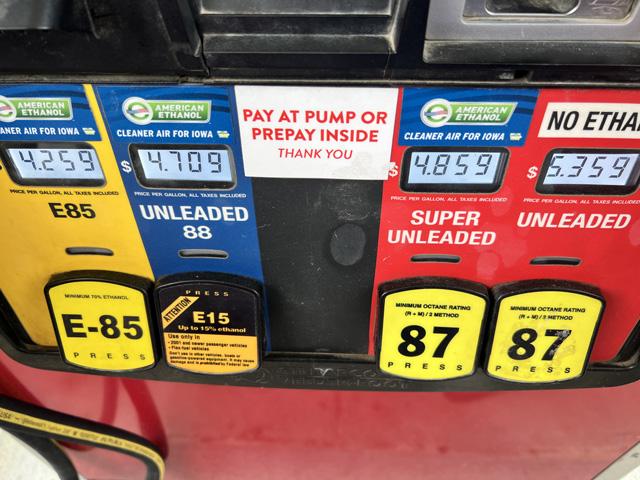Ethanol Blog
Commodity Groups: Ethanol Threatened by Fuel-Test Rule Buried in EV Mandate
LINCOLN, Neb. (DTN) -- New fuel economy test procedures contained in the Biden administration's final pollution standards for passenger vehicles penalize ethanol and should be declared unlawful, three commodity groups argue in a petition filed in federal appeals court.
The U.S. Environmental Protection Agency (EPA) on March 20 finalized pollution standards for vehicle model years 2027 to 2032 and requires automobile companies to ramp up production of electric and hybrid vehicles.
In a petition filed with the U.S. Court of Appeals for the Fifth Circuit, the Texas Corn Producers, Texas Sorghum Producers and the National Sorghum Producers asked the court to rule unlawful and vacate a portion of the law that sets fuel economy test procedures for liquid fuels.
E10 has been the standard gasoline blend for nearly 20 years. Until now, car manufacturers have continued to use E0 when certifying cars for compliance with national fuel economy and emission standards because of the way EPA penalizes vehicles tested on E10.
"EPA's establishment of an inaccurate Ra 'sensitivity factor' of '0.81' violates EPA's statutory duty to promulgate test procedures 'that give comparable results' to prior test procedure regulations and unlawfully increases the stringency of automobile fuel economy standards," the groups said in their petition filed in the court in New Orleans.
"EPA's final Ra 'sensitivity factor' is arbitrary and capricious or otherwise contrary to law."
P[L1] D[0x0] M[300x250] OOP[F] ADUNIT[] T[]
The commodity groups said in a news release that they warned the EPA not to make changes to the testing standard.
"EPA proposed to update the test fuel years ago," the groups said.
"A crucial part of this update is the R-factor, a number meant to adjust fuel economy for differences in the energy density of the test fuel. But EPA's R-factor for E10 is based on deeply flawed science and artificially lowers the fuel economy of cars tested on E10 instead of E0 as commentors, including the Texas Corn Producers, explained. EPA ignored these comments and finalized the rule anyway."
The groups said the test procedures "arbitrarily and illegally" penalize ethanol -- and liquid-fueled vehicles "which ultimately penalizes the corn and sorghum farmers who contribute to U.S. ethanol production."
EPA's final overall emissions rule challenged by 13 states, requires automakers to make 69% of new vehicles electric or plug-in hybrid by 2032.
"This move comes with a large price tag for Americans: some $870 billion in vehicle technology costs alone," the groups said on Thursday.
David Gibson, executive vice president of Texas Corn Producers, said the regulations are "bad for ethanol" and perpetuate the "false narrative" that cars are not suited to operate on E10 or E15, let alone on E20 or E30.
Kody Carson, a sorghum producer from Olton, Texas, and past chairman of the National Sorghum Producers, said in a statement the rule is harmful to the future of biofuels.
"The immediate effect of the new R-factor is to increase the stringency of national fuel economy standards, destroying demand for liquid fuels," Carson said.
"This R-factor also sets a dangerous precedent going forward. By penalizing car manufacturers for switching to a higher ethanol blend, EPA's R-factor will dampen their incentive to certify cars designed for higher blends of ethanol, such as E20. EPA's rule will destroy liquid fuel demand by at least 780 billion gallons by 2055. The unlawful R-factor pours salt in the wound. EPA hoped no one would notice when it reintroduced these flawed procedures. We noticed."
Read more on DTN:
"13 States Fighting Biden on EV Mandate," https://www.dtnpf.com/…
Todd Neeley can be reached at todd.neeley@dtn.com
Follow him on social platform X @DTNeeley
(c) Copyright 2024 DTN, LLC. All rights reserved.






Comments
To comment, please Log In or Join our Community .